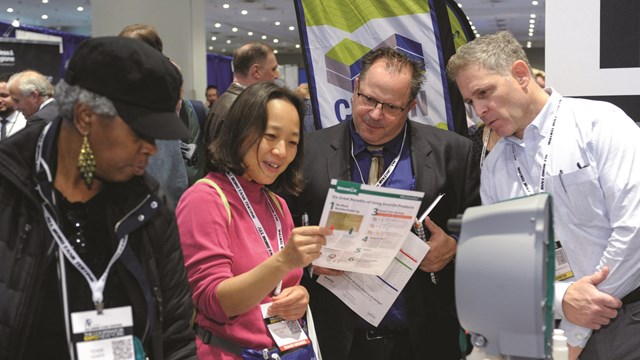A recent decision in Illinois Appellate Court will bring relief to condominium owners involved in lawsuits with real estate developers over construction defects not disclosed in the engineering reports provided during the purchasing process. It may also bring improved transparency to the often-opaque world of real estate development, and increased liability to the professionals who provide those engineering reports to developers.
The case, known as 21 Kristin Condominium Association vs. Pioneer Engineering and Environmental, involves a 357-unit condominium complex located in Schaumburg, Illinois that was completed in 1972.
A Legal About-Face
Sima Kirsch, an attorney based in Chicago who specializes in condominium related issues, says this decision is very significant because it changes the position of contractors who provide expert information to purchasers through developers.
“It’s a case that has turned longstanding contract principles on their end,” Kirsch says. In short, Kirsch says, the Illinois Appellate Court 1st District reversed a lower court’s decision that rejected a condo association’s $1.5 million claim against the engineering company that prepared the condo developer’s property report. The court found that the condo association failed “to state facts to support their claim that the engineering company breached its duty and negligently misrepresented the condition of the building,” Kirsch says. “The decision is a reversal of a well-established proclivity in Illinois courts to overlook the needs of the prospective purchasers, elevate the rights of the developer and related professionals with specialized knowledge, and support their exclusions and waivers of warranties - even though by doing so they deny basic contract protections for the purchasers of new, gut rehab or conversion properties.”
What the Court Decided
Kirsch explains that “Despite the defendant engineering company’s arguments to the contrary, the court overlooked exclusionary language in the company’s contract, its argument that their statements were ones of opinion - not fact - and found in part that based on section 522 of the Restatement (Second) of Torts (1977): ‘One who, in the course of his business, profession or employment, or in any other transaction in which he has a pecuniary interest, supplies false information for the guidance of others in their business transactions, is subject to liability for pecuniary loss caused to them by their justifiable reliance upon the information, if he fails to exercise reasonable care or competence in obtaining or communicating the information.’
“The engineering company had specialized knowledge not available to the plaintiff,” Kirsch continues. “The plaintiff justifiably relied on that knowledge, and the defendant engineering company knew that the developers would use its report to persuade prospective purchasers to buy units in the building. Further, they knew that the language of the report was one of fact - not opinion. The Court quoted other cases holding, ‘Thus, the general rule is that it is not ‘the form of the statement, which is important or controlling, but the sense in which it is reasonably understood.’ Whether a statement is one of fact or of opinion depends on all the facts and circumstances of a particular case.”
Real Life Implications
So what does this mean for condo boards and owners going forward? Despite the convoluted legal language, Kirsch says this critical decision now enables boards and owners to pursue legal recourse for misrepresentations of fact by contract vendors. The upshot is, developers, and those providing relevant reports to them, will be held to account for what they report. Condominium owners can take this decision as a victory for all.
“It shifts the balance,” says Kirsch. “Although a boon to the contract purchaser, this decision - and ones to follow - will result in a serious increase in contractual costs for opinions and reports to cover the new claims. It is a wake-up call to the development industry here in Illinois that the rules are changing - at least in part. It is also an alert to any professionals on whose specialized knowledge a client relies on, as opposed to merely their opinion.”










Leave a Comment